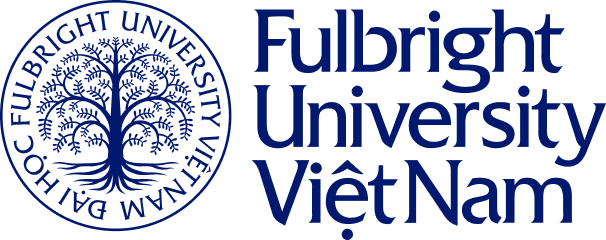
After completing the Energy Economics and Policy seminar, the Malaysian YSEALI alumna is strongly keyed to the power of transnational conversation – a prerequisite, she believes, to advance Southeast Asia’s transition into a clean energy future – for which the YSEALI Academy has proven to be an effective facilitating platform.
A roadmap for sustainability and climate change
Gan Wei Sim attributes her discovery of the Energy Economics and Policy seminar to a tip-off from a colleague in Thailand. “Naturally she’s known of my background and interest in the energy sector,” she says. “When I saw the topics that would be covered in the seminar such as energy market, energy policy and regulation [on the YSEALI’s website], I knew it would provide a strong foundation for my work.”
Among the 35 fellows participating in the seminar, all handpicked from hundreds of applications and representative of young professionals from 10 ASEAN countries and Timor Leste, Gan comes from the private sector. Her experience includes working as a Corporate Sustainability and Climate Change Consultant at one of the largest multinational providers of environmental, health, safety, risk, and social consulting services in Malaysia. Having obtained a master’s degree in Chemical and Environmental Engineering at the University of Nottingham in 2017, Gan started off as a junior consultant on technical risks and process safety.
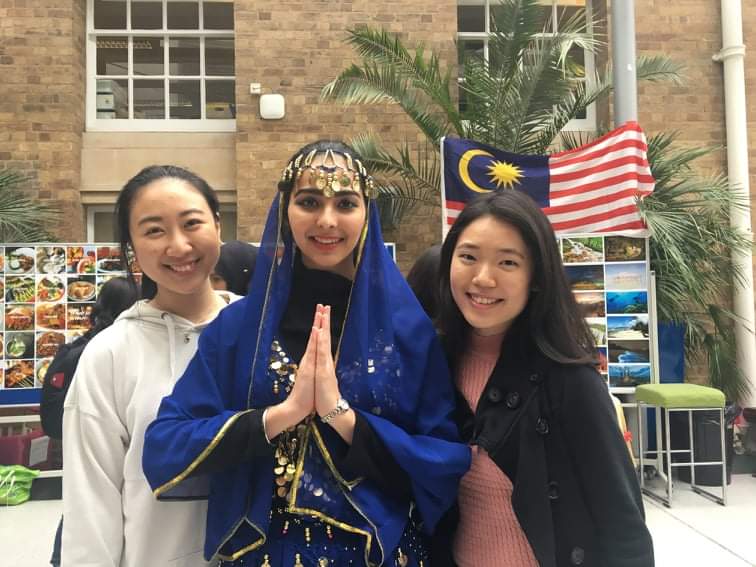
Wei Sim (first from right) with members of the Nottingham Malaysia Society
The firm she’s worked for also provides strategic solutions for a wide range of local and international businesses, chief among them is the oil and gas, power and chemical industries with whom she’s had insightful conversations that motivate Gan’s dedication to sustainability and climate change issues. “When I set out working in the energy sector, I didn’t immediately register how severe, how carbon-intensive the burning of fossil fuels can be,” she recalls. “Then I went into doing my own research, reading articles, educating myself on that issue. Slowly my interest in the issue took hold and remains strong until this day.”
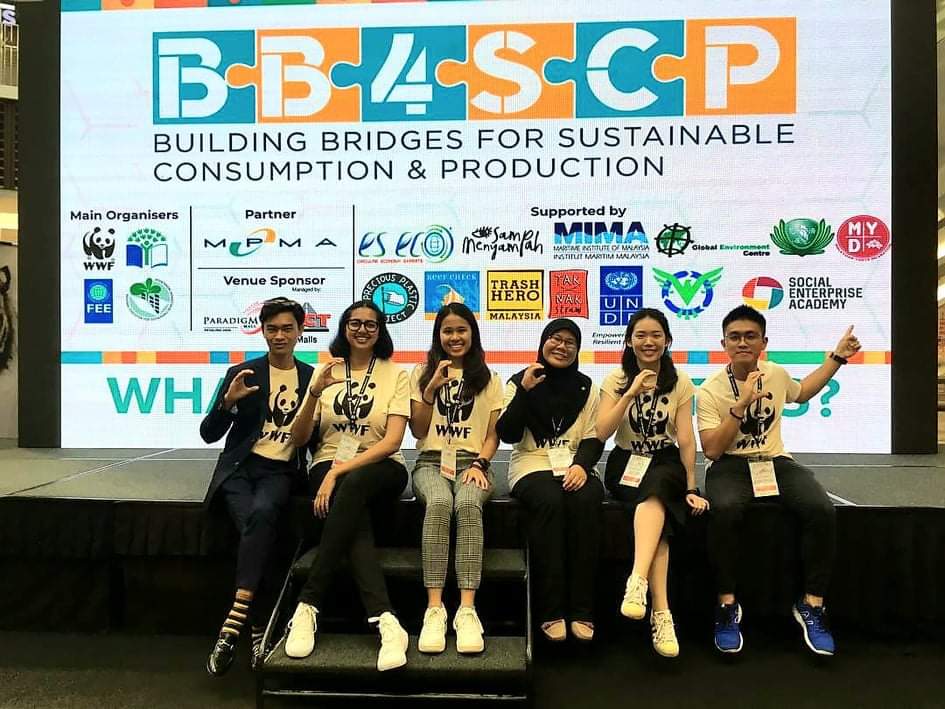
Gan Wei Sim (second from right) at the Building Bridges for Sustainable Consumption and Production (BB4SCP) conference
Many companies in Malaysia are striving to align with the global target of net-zero emissions. Working with international organizations such as WBCSD (World Business Council for Sustainable Development) and UNDP (United Nations Development Programme), Gan has helped devise action plans and roadmaps that bolster these corporations’ transition to a low carbon economy. “I understand that every country has different policies and regulations, not to mention their own energy market,” she says. “And so, the YSEALI seminar on Energy Economics and Policy is a great opportunity for me to gain knowledge. This kind of discussion is very important, especially when it focuses on Southeast Asia specifically, where collaboration and information exchange between nations is key to reach ASEAN’s renewable energy target and ultimately reduce carbon emissions from the energy sector.”
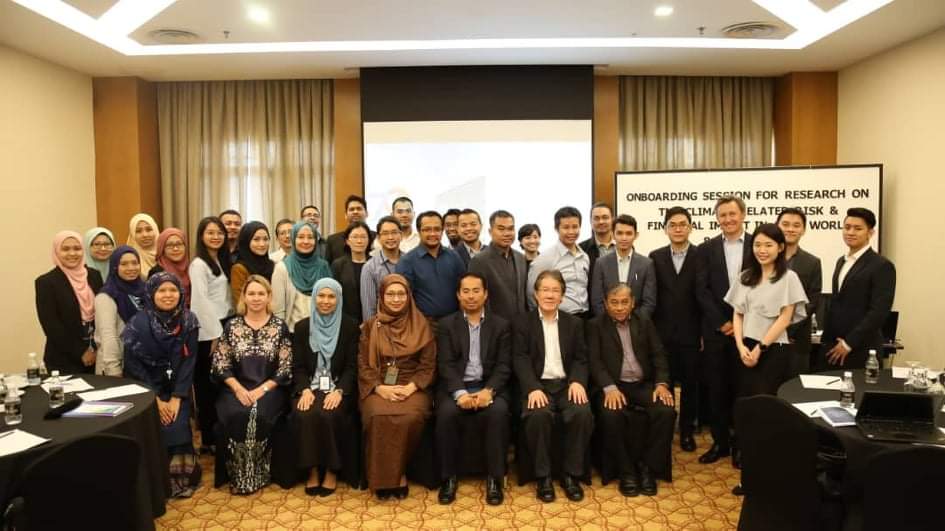
Wei Sim (third from right) at a client workshop about climate change
The spirit of camaraderie
A virtually hosted program, the YSEALI seminar on Energy Economics and Policy left a big impression on Gan on how “intensive yet well-organized and thought out” it was. “In just two weeks, we’d covered so many different topics, done lots of reading and assignments,” Gan says. “The seminar managed to invite into this collective space not only prominent scholars and industry experts as our lecturers, but also brilliant fellows from different countries in the region, with whom I’ve had inspiring discussions.”
While Gan was particularly fascinated with lectures on renewable energy, namely ‘Traditional, Clean, and Renewable Energy: Alternatives, Transition or Synergy’, or ‘Renewable and nonrenewable energy consumption, economic growth, and emissions’, she was even more fond of panel discussions regarding solar energy, offshore wind energy, and clean energy transition via electric vehicles. “These are exciting conversations that I’m quite interested to expand on, as they involve technologies geared to the future of energy,” she says. “Take solar energy for example, we got to hear from executives of major solar panel manufacturers. They provided us with real-life case studies to uncover, in which practical issues were thoroughly dissected and discussed.”
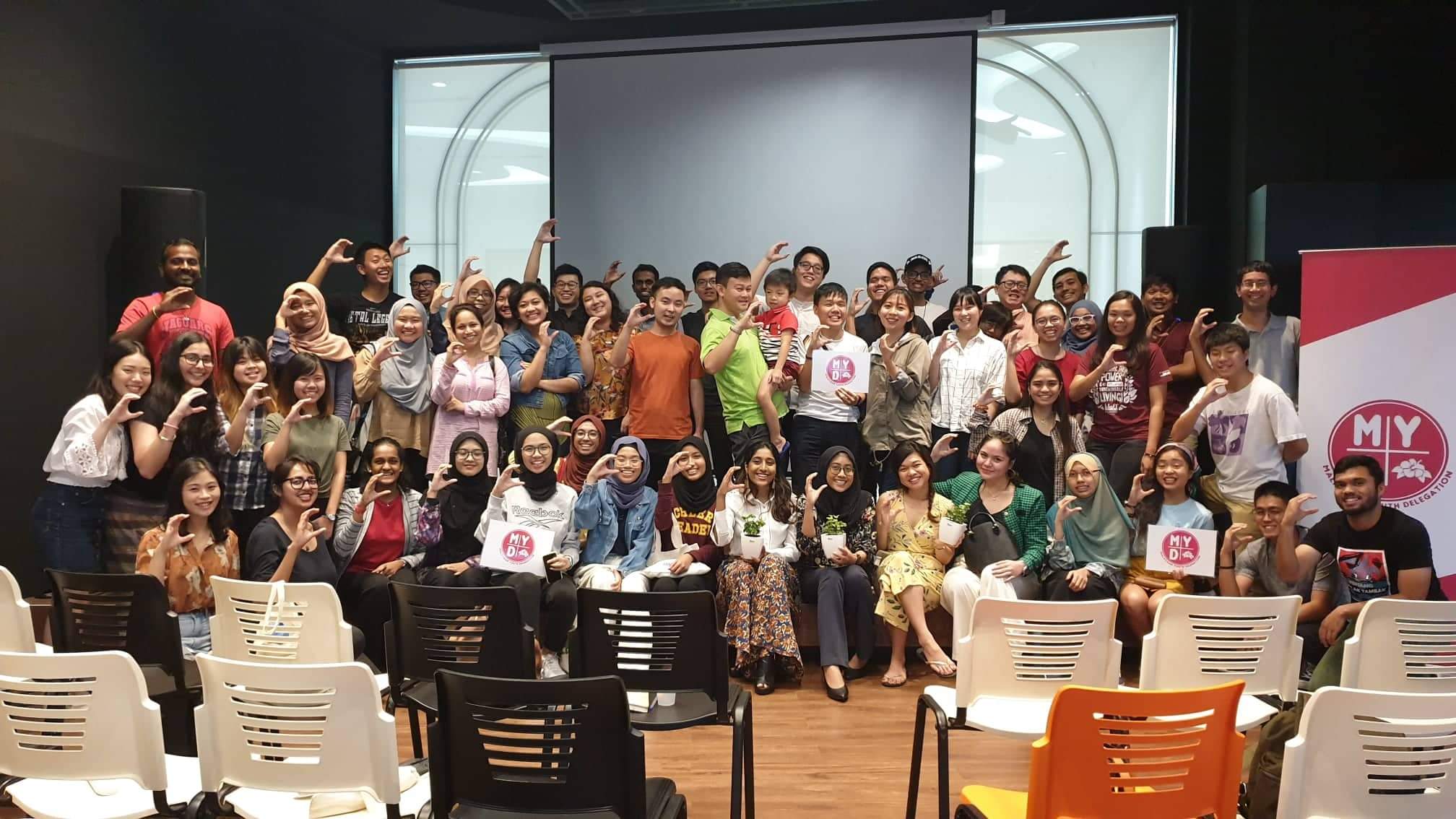
Wei Sim (first from left) at a seminar hosted by the Malaysian Youth Delegation (MYD)
These sessions proved to be helpful and informative for Gan as she recognizes the challenging gap between theory and the varying contexts from nation to nation on the path of clean energy transition. Insights into the geopolitical constraints, power market and structure, pricing and regulation of energy in each country, thus became vital. In that respect, the YSEALI fellows with whom she’s connected at the seminar have made the flow and exchange of information much easier. “This is a very talented group of young professionals,” she says. “With such diverse backgrounds in governments, NGOs or academic research, they have given me new perspectives, factoring in recommendations and consultations I’m working on at my job. I have learnt a lot from them, and of course, we still keep in touch.”
Active, willing to take initiative, highly skilled in teamwork and collaboration, Gan’s team of 5 successfully delivered their group project on “Southeast Asia Clean Energy Transition”, which was assigned to them at the start of the seminar. Some of the highlights of the 20-minute presentation are about affordable energy, electrification, power stability and connectivity in the region, whose current state of development presents a distinct contrast to what could be observed from developed countries. “The assignment prompted us to reconsider our different standings in social challenges and cultural backgrounds,” she says. “In Southeast Asia, we’re confronted with unique issues unlike other parts of the world that require education, government support and collaborative efforts across nations to make significant and long-lasting progress.”
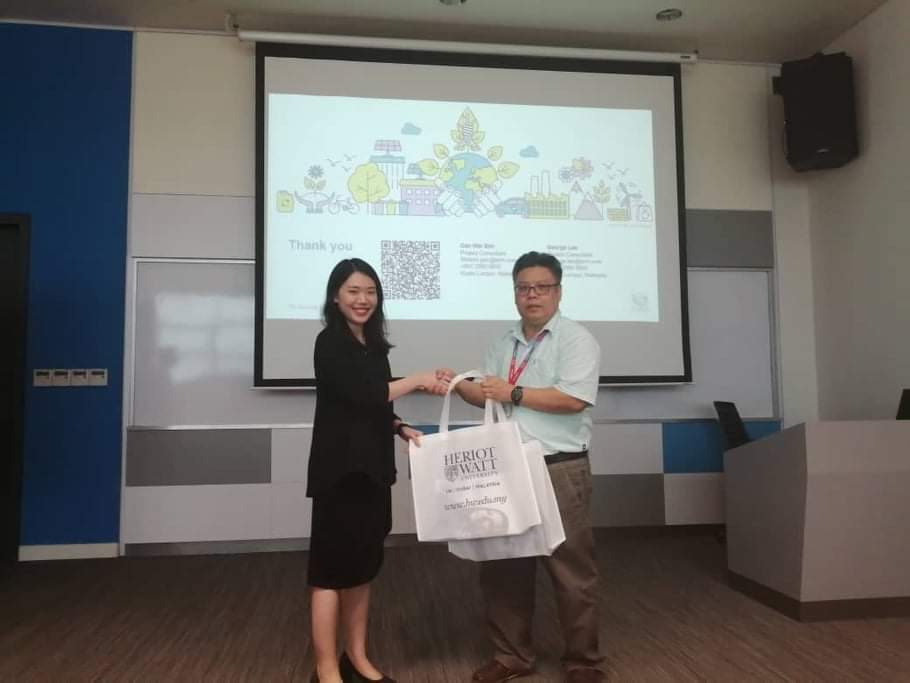
Wei Sim at the “Walk the Talk” event at the Heriot-Watt University Malaysia
In her opinion, the YSEALI seminar serves as a good sounding board to jumpstart that vision. “I’m very happy to see initiatives like YSEALI started,” she smiles. “It helps build and strengthen our capability to combat climate change and deal with energy issues in Southeast Asia.” While the YSEALI Academy gears up for its upcoming seminar on ‘Digital Transformation Challenges and Opportunities in Post-COVID-19′, Gan hopes to see topics such as sustainable finance or green technology solutions receive coverage on future programs. “Not just energy, other sectors also play a critical role in facilitating the conversation and supporting this journey of ours to combat a pressing global issue,” she says. “I hope that the conversations we started here at the seminar will continue on, that it will expand and integrate more knowledge from other countries, other fields and disciplines. In that way, we can support each other, spread positive change across nations and drive our future forward in a sustainable manner.”
Bao Quyen




